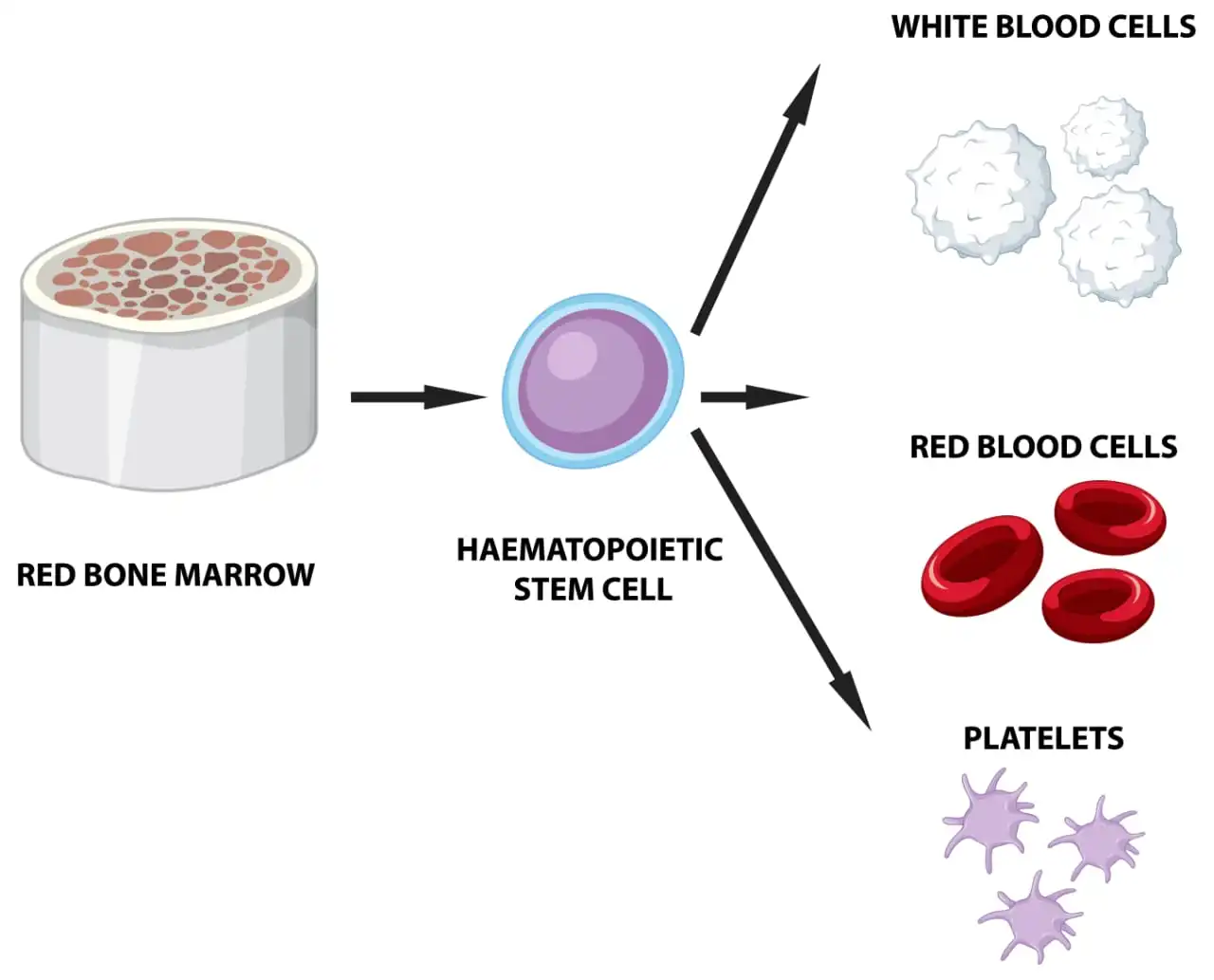Preventive Healthcare
Understanding Platelet Count: Normal Range, Low and High Platelet Counts
9704 Views
0

Platelets are known for their coagulative properties. During injuries, the disc-shaped platelets become active and form tentacles resembling a spider or an octopus. They attach themselves closely. This is called haemostasis. But that is not all.
Moreover, platelets also help the human body in performing several other functions. In many cases, they directly influence good functions, whereas they also create positive impacts indirectly on other internal processes.
This blog focuses on platelets' unknown and magical roles in healing and developing the human body. Without platelets, it would have been impossible for the human body to perform its crucial functions. Especially the blood vessels are indebted to platelets for their regeneration.
What Are Platelets?
Platelets are tiny particles present in the blood. They are a crucial component of blood that makes the blood thicker during an injury. Platelets are also called thrombocytes.
Primary Role of Platelets
The primary function of platelets is to aid the coagulation of the blood. When your body faces any injury that causes bleeding, the damaged blood vessels send signals to the non-active platelets. Upon receiving signals, the platelets reach the injured area and become activated. They form sticky tentacles and stick to one another, thickening the blood. This is the process of blood clotting.
Role of Platelets Other Than Blood Clotting
Besides the clotting of the blood, platelets also perform other essential roles. Some of the roles are as follows:
Inflammation
Platelets are stuffed with bioactive molecules. These molecules are rich in proteins like chemokines, cytokines, growth factors, RNA and microparticles. These are secreted under specific circumstances. Moreover, platelet granules are rich in pro-inflammatory and anti-inflammatory molecules that help in building immunity. Therefore, when foreign particles enter your body, your immune system actively prevents them. Hence, platelets activate several chemicals and components during the process of inflammation.
Angiogenesis
Platelets play a crucial role in successfully completing the process of angiogenesis. Angiogenesis is a complex process that creates new capillaries from old blood vessels. On the one hand, platelets promote the proliferation of endothelial cells, which again stimulate the formation of the capillaries. Platelets activate and aid the secretion of pro-angiogenic molecules. On the other hand, platelets prevent leakage from the angiogenic vessels. In short, without the presence of platelets, the formation of new capillaries is impossible.
Regeneration of Tissue
While platelets work hard toward the formation of capillaries and the process of inflammation, tissues also get repaired in the process. All the above processes of inflammation, angiogenesis and blood clotting are essential processes that again promote tissue repair. Therefore, platelets are inevitable for tissue healing and repair.
Influence on CNS Inflammation
Platelets have the capabilities to interact with several neurovascular cells like neurons, endothelial cells, glial cells and other blood-derived cells. Hence, when a CNS tissue is damaged, platelets present in the endothelial cells become activated. These activated platelets direct leukocytes to the damaged areas. With this property, platelets also influence the inflammatory process of the CNS in different pathological scenarios. Platelets also play a vital role in the inflammation of CNS in Alzheimer's patients.
In short, platelets take part in several chemical reactions that actually aid the process of inflammation.
Regeneration of CNS Progenitor Cells
It is still under scientific research. According to some scientists, platelets may also directly influence the repairing and regeneration of the CNS progenitor cells.
Helps to Treat Diseases
Platelets play a huge role in treating life-threatening diseases like cancer, injuries and chronic illness.
Normal Platelets Count
The platelets count in a healthy adult human body ranges from 150,000 to 450,000 per microlitre of blood. It does not vary in males or females. You have a low platelet count if your blood contains less than 150,000 counts. Similarly, if the count goes beyond 450,000, you have a high platelet count.
Any deviation from the standard range causes severe consequences.
Low Platelets Count: Conditions
The condition of low Platelets is called thrombocytopenia. Poor lifestyle is responsible for the low count of Platelets. This condition may lead to several life-threatening complications:
- Poor blood clotting
- Excess blood loss in injuries
- Internal haemorrhage
- Immune thrombocytopenia
High Platelets Count: Conditions
The condition of too many platelets in the blood is called thrombocytosis. Abnormal cell formation increases the Platelet number. Thrombocytosis may lead to:
- Thrombocythemia
- Strokes
- Cardiovascular diseases like heart attack
- Cancer
- Complications in pregnancy
How to Check Platelets Count in Blood?
You can quickly check the platelet count in your blood. But first, you must visit a doctor's chamber for a prescription. You can submit samples to any legal pathology centre with the proper prescription. Your doctor may prescribe for:
- Platelet Count
- Complete Blood Count (CBC Test)
- Bone Marrow Biopsy
Summary
In short, the role of platelets in the human body is not restricted to just the clotting of the blood. Moreover, it serves in the regeneration of tissues and the generation of nerve cells. Therefore, you must take proper notice of your platelet count. Pay attention to the usual symptoms due to an imbalance in your platelet count. Like their unmatched healing capability, platelets also have the capability of causing grave danger to your overall health.
Metropolis Healthcare is one of the leading diagnostic centres in India. It is one of the biggest pathological chains, with branches in almost every city in the country. With its premium services to every patient and its unmatched record of accurate test results, Metropolis Healthcare has maintained its reputation since its foundation days.
Things you should know about Metropolis Healthcare:
- One-time sample collection
- Painless blood sample collection
- Tests using the latest equipment
- Thoroughly cleaned and sanitised labs and machines
- Staff follow the optimum safety measures to avoid any contamination
- Special attention to every patient, especially children and older patients
- Accurate and verified test reports with doctor's affirmation in less than 24 hours
Book CBC Test
Final Takeaway
- Platelets help in the clotting of the blood.
- Platelets aid in the regeneration of tissues.
- Platelets impact CNS inflammation.
- Pay attention to your Platelet counts regularly.
- Visit your healthcare provider if you experience any unusual symptoms.
- Visit Metropolis Healthcare for all sorts of health tests.























 WhatsApp
WhatsApp